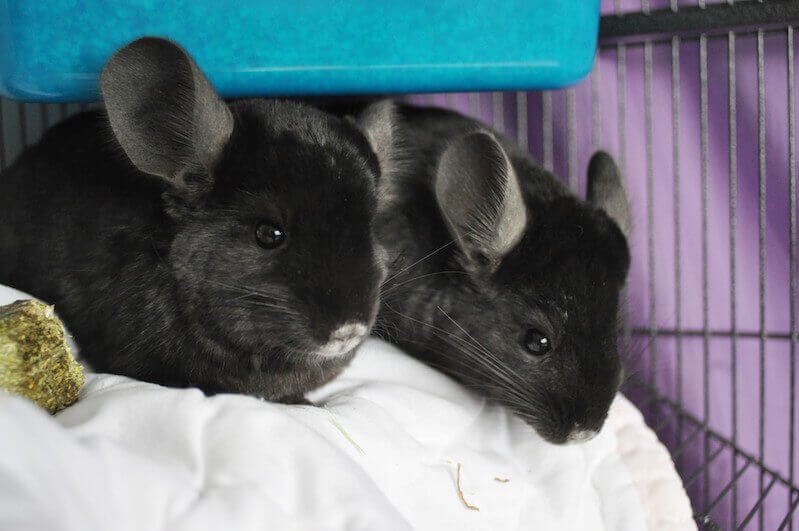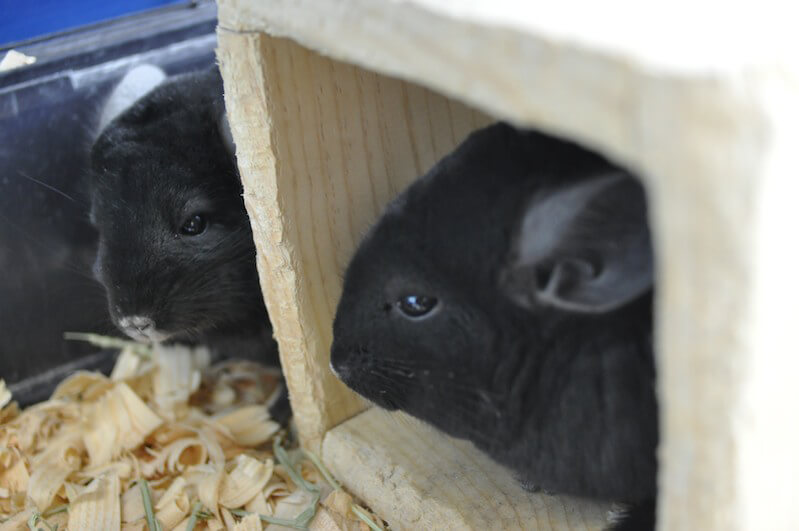Chinchilla Breeder: ‘If They Don’t Work Out, I Pelt ’Em’
Two PETA fieldworkers flew to California to help remove hundreds of animals from a chinchilla ranch that we succeeded in closing—and they didn’t come back empty-handed.
In their past lives, this pair was kept as “livestock” at one of the largest chinchilla farms in California. Like the hundreds of other chinchillas warehoused in cramped cages there, these curious girls had no real life to speak of—unless staring at rows of other cages counts. Chinchillas are social animals who naturally live in large groups and enjoy burrowing, climbing, jumping, and playing. At the farm, they had no opportunity to do any of these things.
They were even denied basic medical care: None of the chinchillas ever saw a veterinarian—even for emergencies. The owner amputated animals’ limbs with wire snips—using six drops of brandy instead of anesthetics, claiming that “they don’t feel pain, I guess, very much.” She also said this about chinchilla deaths: “I usually have so many animals that if I lose one, it’s not a catastrophe.”
Chinchillas who didn’t “work out” as companions met a gruesome fate: toe-to-ear electrocution. This crude method of slaughter, used on many fur farms, makes the animals go rigid but leaves them conscious to experience all the pain of a full-blown heart attack. The animals are then skinned, and their pelts are turned into hats, scarves, coats, and blankets. Our investigator saw a freezer containing pelts that was well hidden from the public eye.
When PETA found out that all 424 chinchillas were going to be electrocuted and skinned if the farm—which was up for sale—couldn’t find a buyer, we approached our patron Sam Simon. Without hesitation, he said, “Let’s get them!”
With the exception of these two, all the rescued chinchillas are currently at the San Diego Humane Society and SPCA, awaiting adoption.
At PETA’s shelter, in the Sam Simon Center (PETA’s Norfolk, Virginia, headquarters), the lovely pair above have each other and are taking dust baths, eating fresh Timothy hay and rose hips, and playing with their new toys—but we’re eager to find them a permanent home together.
Are you able to make the commitment to daily care, including veterinary care, for these two chinchillas for up to 20 years? (Yes, they can live that long!) If so, please e-mail [email protected] to find out more.


